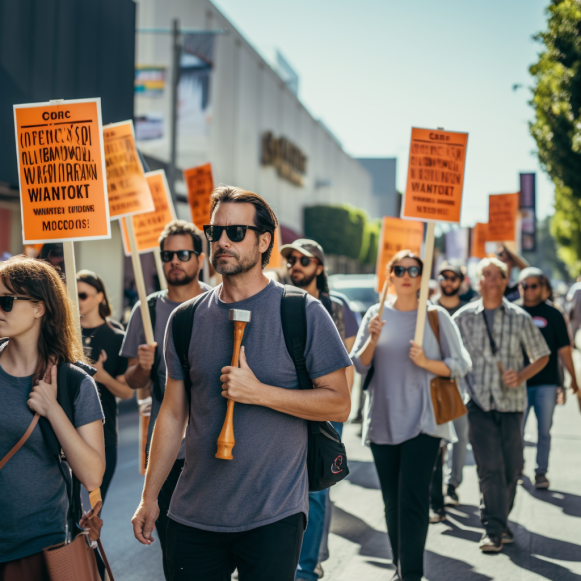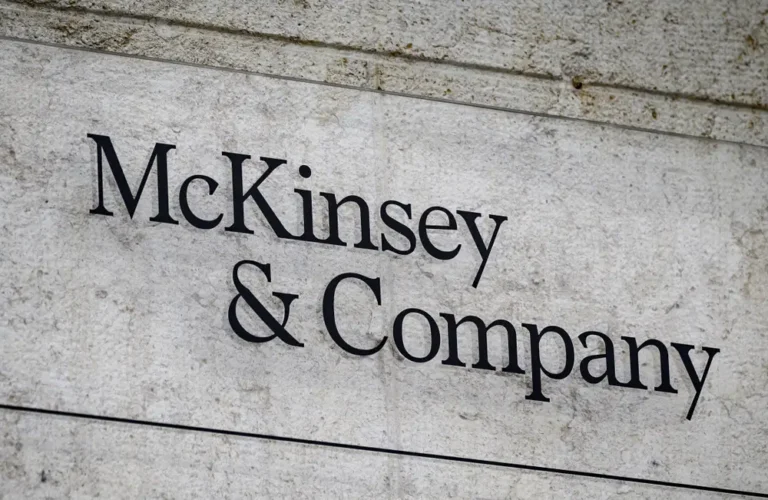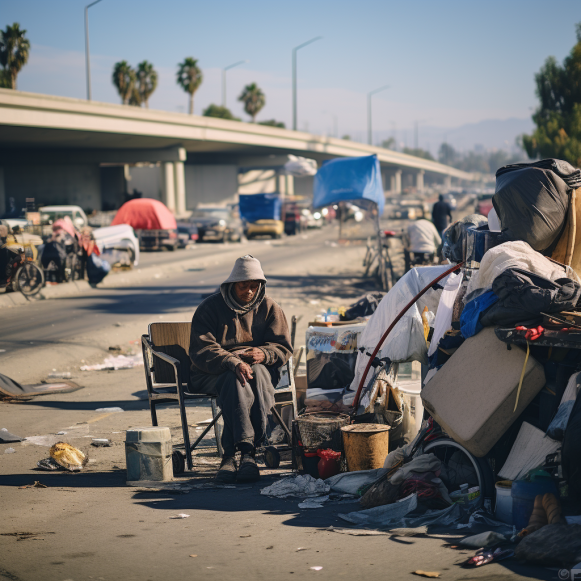Hollywood is bracing for a ‘land grab’ for production studios and a scramble to restart films and TV shows once the strikes end

- Hollywood is bracing for a scramble to restart productions once the strikes end.
- Some productions are quietly starting to inquire about booking studio space again.
- Getting productions restarted will be complicated because of the strikes’ duration.
The historic strikes in Hollywood continue, but players are quietly preparing to resume productions once the work stoppage ends — whether that’s as soon as October, as industry optimists hope, or as late as early 2024, a nightmare scenario for all.
Some Hollywood studios have long-term leases on soundstages, allowing them to control what and when they film, but most producers book stages for specific productions. And, because it’s difficult to plan ahead until the strikes are resolved, most productions are on hold.
On Wednesday, the Writers Guild of America and the Alliance of Motion Picture and Television Producers, which represents the major studios and streaming services, will return to the bargaining table. Even if they reach an agreement in the coming weeks, the actors’ union, SAG-AFTRA, has its own strike and concerns to address.
However, several high-level studio executives, studio investors, and producers told Insider that the wheels are turning, with some productions starting scenario planning.
According to entertainment attorney Elsa Ramo, the need to finalize budgets for 2024 is forcing productions to be more methodical. Because studios and streaming services did not rush to acquire documentaries and reality shows to replace the scripted shows whose production has been largely halted due to the strikes, the stakes are high for already financially stressed producers to resume filming.
“There’s a very deliberate effort to plan out, ‘what do we do if the strike ends,’ for productions that have been greenlit or could be greenlit soon,” Ramo told Insider. “There will be a land grab for a variety of resources.” Because those who are not prepared to act will fall far behind.”
Some productions are interested in booking soundstages.
According to Hal Rosenbluth, president of Kaufman Astoria Studios, he has received an increase in calls from productions that have already been announced and are looking to lock in stages in the weeks following the strike’s end as they try to figure out when that might be.
“They’re figuring that out and calling us,” he explained. “They want to ensure that their projects will have a home.”
After a recent lull in activity, producers are returning to Pangaea Studios, Atlanta’s second-largest movie and TV studio, according to Steve Greenberg, CEO and founder of holding company Voltron Global, which owns Pangaea.
“It appears that people are returning. “There was a little more energy around taking up space,” he explained.
Construction on new soundstages, which have been heavily funded by private equity in recent years, is also moving forward, with projects such as a $350 million studio campus on New York’s Pier 94 breaking ground.
Of course, no one expects spending on new entertainment to return to pre-strike levels once the strikes end. Even before the strike, Netflix, Warner Bros. Discovery, and others slowed down on new show commissions as Wall Street began demanding profits from the streaming business rather than just growth. Longer term, the level of spending is being questioned as doubts about the financial potential of streaming grow.
‘There’s only so much room available’ once film and television production resumes.
In normal circumstances, managing studio space is akin to organizing a relay race in which one production must be ready to take over from the one that came before.
When the writers put down their pencils in May, the system was thrown into disarray. Some projects were ready to begin production, with sets already built, while others were in the middle of a TV series.
A few productions were able to continue filming thanks to SAG-AFTRA’s interim agreements for projects that were completely independent of the strike companies. Many producers behind such projects, however, were hoping for an end to the strike so they could sell their completed films and series to AMPTP members — with the prolonged walkout, they may have to wait longer to recoup their investment.
“The reality is that the strike is lasting longer than expected, and signing on to the IA may jeopardize your ability to sell the project,” Christian Simonds, an entertainment lawyer at Reed Smith, told Insider. “The streamers aren’t necessarily going to acquire something while the strike is still going on,” he added, noting that projects undertaken under the interim agreement agreed to terms set solely by the guilds.
Owners of production facilities are communicating with producers and with one another, exchanging information and preparing for when they can return to work.
They’re hearing that production executives are trying to figure out what projects they’ll pursue once the strike ends, who they’ll work with, where they’ll shoot, and how much space they’ll require. According to Rosenbluth.
Shows or films that have been suspended in the middle of production may hope to resume as soon as possible, only to discover that their time slot has already been claimed by another client. They may discover that cast members have other obligations and are unavailable.
The challenge for those looking to book space while the strike is ongoing is writing contracts that account for the unknowns about when the strikes will end and production work can begin, according to Rosenbluth.
Then there’s the need for below-the-line crews, many of whom may have been laid off or furloughed during the strike and will need to be rehired and back on the job before production can resume.
For at least one top executive at a large independent production company, booking space is still too risky because they risk making a deposit they can’t get back. They’re also aware that decisions about which shows can go into production will be influenced by a variety of factors, such as actor availability and the time of year.
“It’s going to be a clusterfuck on day one,” a Hollywood insider predicted. “There’s only so much sound space available.”






